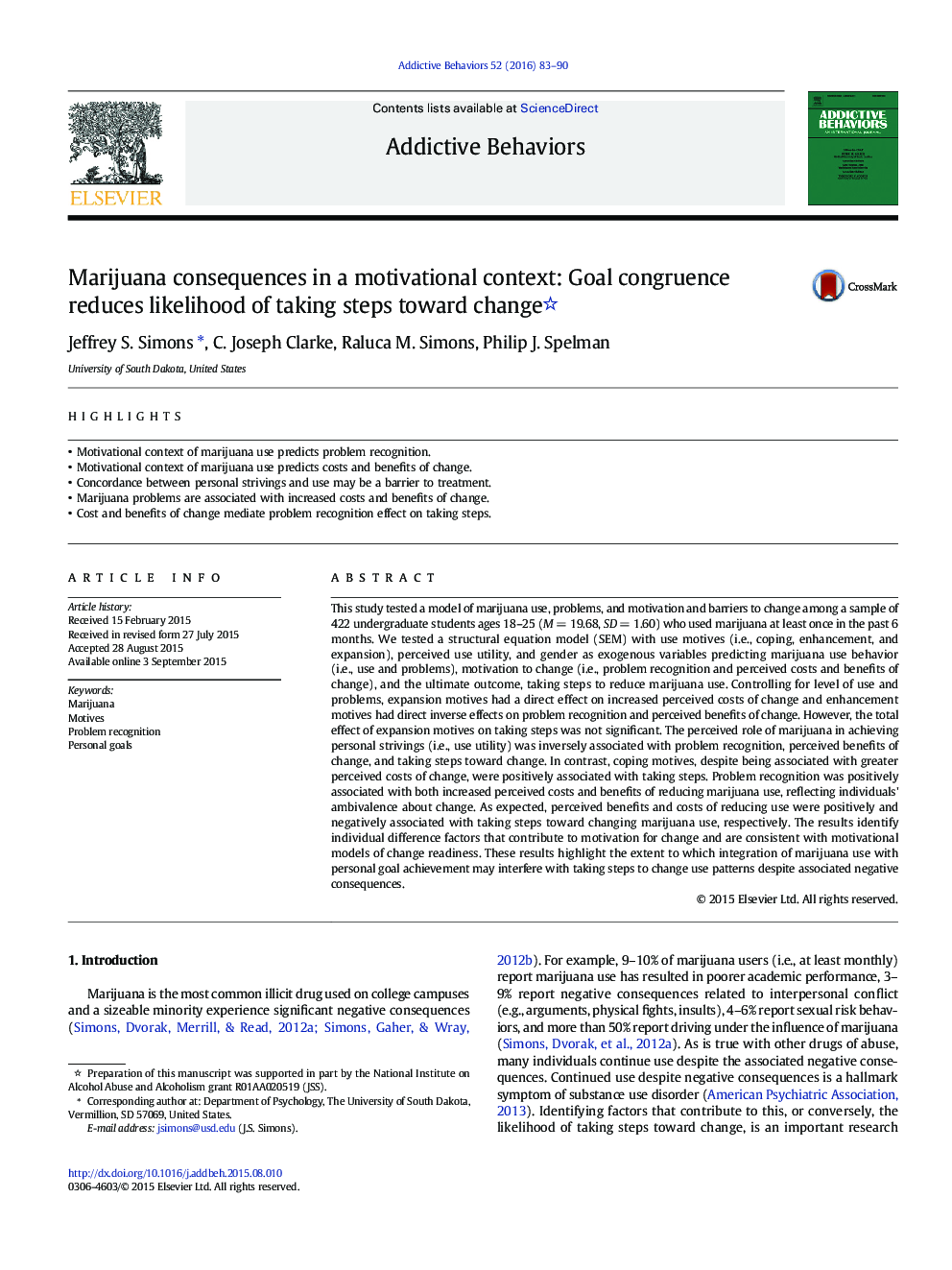| کد مقاله | کد نشریه | سال انتشار | مقاله انگلیسی | نسخه تمام متن |
|---|---|---|---|---|
| 898618 | 1472519 | 2016 | 8 صفحه PDF | دانلود رایگان |
• Motivational context of marijuana use predicts problem recognition.
• Motivational context of marijuana use predicts costs and benefits of change.
• Concordance between personal strivings and use may be a barrier to treatment.
• Marijuana problems are associated with increased costs and benefits of change.
• Cost and benefits of change mediate problem recognition effect on taking steps.
This study tested a model of marijuana use, problems, and motivation and barriers to change among a sample of 422 undergraduate students ages 18–25 (M = 19.68, SD = 1.60) who used marijuana at least once in the past 6 months. We tested a structural equation model (SEM) with use motives (i.e., coping, enhancement, and expansion), perceived use utility, and gender as exogenous variables predicting marijuana use behavior (i.e., use and problems), motivation to change (i.e., problem recognition and perceived costs and benefits of change), and the ultimate outcome, taking steps to reduce marijuana use. Controlling for level of use and problems, expansion motives had a direct effect on increased perceived costs of change and enhancement motives had direct inverse effects on problem recognition and perceived benefits of change. However, the total effect of expansion motives on taking steps was not significant. The perceived role of marijuana in achieving personal strivings (i.e., use utility) was inversely associated with problem recognition, perceived benefits of change, and taking steps toward change. In contrast, coping motives, despite being associated with greater perceived costs of change, were positively associated with taking steps. Problem recognition was positively associated with both increased perceived costs and benefits of reducing marijuana use, reflecting individuals' ambivalence about change. As expected, perceived benefits and costs of reducing use were positively and negatively associated with taking steps toward changing marijuana use, respectively. The results identify individual difference factors that contribute to motivation for change and are consistent with motivational models of change readiness. These results highlight the extent to which integration of marijuana use with personal goal achievement may interfere with taking steps to change use patterns despite associated negative consequences.
Journal: Addictive Behaviors - Volume 52, January 2016, Pages 83–90
